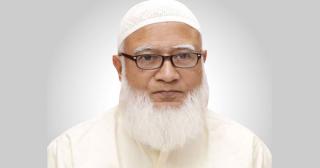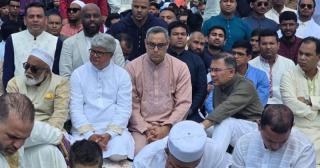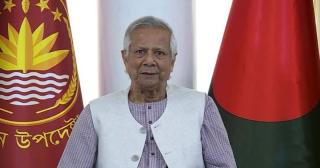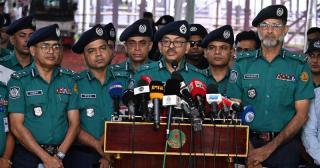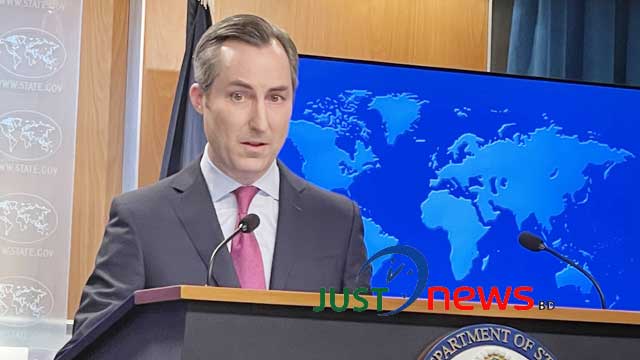
Mushfiqul Fazal Ansarey, State Department correspondent
At a June 24 State Department briefing, correspondent Mushfiqul Fazal Ansarey raised concerns about the Bangladesh Police Service Association’s recent threatening statement aimed at media outlets reporting on police corruption. The new measures have raised serious questions about press freedom in Bangladesh, which ranks 165 out of 180 countries in the Press Freedom Index.
“Recently, the Bangladesh Police Service Association issued a threatening statement aimed at media outlets reporting on police corruption. This is minimal compared to the widespread corruption involving top regime personnel, which the controlled media often ignores. A leading English daily newspaper editor publicly said that they cannot publish known corruption stories. What action will the United States take to address these threats against press freedom and combat corruption?” Ansarey asked.
“We strongly support the role of a free and independent media in maintaining effective democratic institutions and promoting government transparency,” Spokesperson Matthew Miller responded. “We object to any efforts to harass or intimidate journalists to prevent them from conducting their important work.”
The Bangladesh Police Service Association (BPSA), representing senior officers of the law enforcement force, issued a strong and ominous message to the media. The statement appeared intended to intimidate journalists from reporting on corruption involving any of its members. Despite the lengthy release, the association did not cite a single report or name to which they objected for being slanderous.
The association’s statement claimed, “Partial, motivated, and indiscriminate reports about former and serving members of the Bangladesh police are being published serially in the news media and on social media.” While the association has the right to protest what it calls a “smear campaign” against its members, it did not name any alleged victims of defamation, making it difficult to justify accusing any media outlet of “publishing offensive and negative news reports” out of “personal vengeance and self-interests, which goes against journalistic ethics.”
In recent weeks, stories involving alleged widespread corruption and abuse of office by two top officials—former Inspector General Benazir Ahmed and former Commissioner of Dhaka Metropolitan Police (DMP) Mohammad Asaduzzaman Miah—have shocked the nation. There have been no major graft allegations against any serving officers in recent days, though this does not imply the force is corruption-free.
The BPSA’s warning is particularly concerning given the overall media environment in the country, which limits the ability of the press to hold the powerful to account.. On June 1, Mahfuz Anam, president of the Editors Council and editor of The Daily Star, stated at a meeting in Dhaka, “Benazir’s case is a startling example where we, in the media, knew all these things. But we didn’t dare to publish them.”
The State Department’s condemnation of the BPSA’s statement and its call for respect for press freedom underscore the US commitment to supporting democratic institutions and government transparency in Bangladesh. As the situation develops, the international community remains watchful of the threats to press freedom and the broader implications for democracy in the region.
MR/










